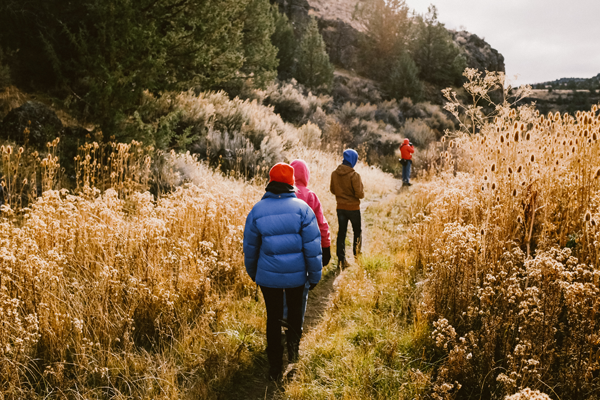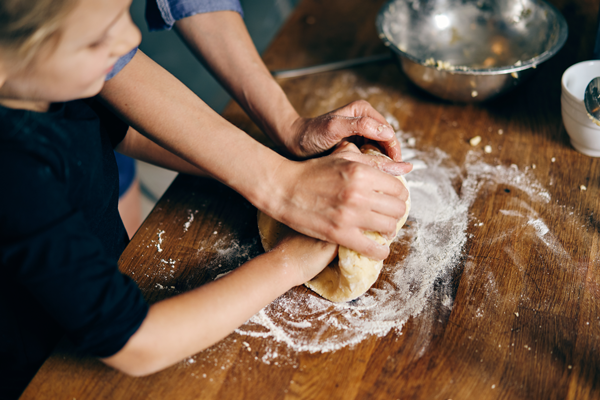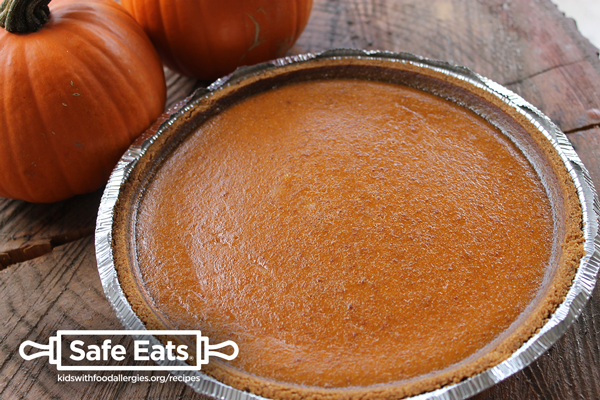Holidays should be a joyful time spent with friends and family. But holidays focused around food can create added stress for parents and caregivers of children with food allergies. These tips will help you avoid food allergy reactions during holiday celebrations.
Keep the Focus on the Holiday, Not the Food

Every family celebrates holidays in their own unique way – often filled with special foods and traditions. Find ways to focus on the holiday and the time together. This could mean making new traditions. Plan fun events that don’t involve food.
- Play a game of flag football.
- Play board games, charades, or cards.
- Work on a jigsaw puzzle together.
- Go for a family walk or hike.
- Gather in front of the TV to watch parades, football games, or favorite movies together.
- Ask each person to bring a favorite family photo to share. Make a display. Ask them to share why they brought that photo and the story behind it.
Get Help From Other People

It takes a village to keep kids safe – especially when it comes to managing food allergies. The best way to prevent food allergy reactions is to help your child avoid accidental contact with their food allergens. Small amounts of your child's food allergen may cause a severe allergic reaction, known as anaphylaxis [anna-fih-LACK-sis]. Enlist the help of others to help keep your child safe.
- If other people will be doing some or all of the cooking, be sure they read and save labels. Have a plan to review ingredients. Make sure everyone who prepares, handles, and serves food your child will eat knows how to prevent cross-contact with allergens.
- Give a trusted teen the job of being a “shadow” for your child with food allergies. Let the teen know which foods are safe and to tell you if they notice any type of symptoms. This can give you peace of mind throughout the day without having to hover over your child.
Be Prepared With Safe Foods

Holidays are a flurry of activity in the kitchen. Even with exceptional planning, sometimes things go wrong. Have a back-up plan for safe food in case you find out at the last minute that a dish is not safe.
- Prepare safe dishes ahead of time and freeze them. These can be dishes that match what’s being served or just some of your child’s favorites. Stick them in the oven when you’re ready to heat them. Be sure to plan some extra cooking time if you bake them from frozen.
- If you aren’t able to make sure there will be safe food, pack a special holiday meal for your child. Make it festive and holiday themed. Consider calling the host ahead of time to find out what will be served so you can make a similar meal for your child. Pack it so it’s easy to re-heat or keep warm without worrying about cross-contact with unsafe foods.
Don’t Procrastinate
The holidays are a busy time. Shop for and prepare dishes when you have a lot of time to read labels. You can freeze many dishes and heat them on the day of the celebration. Allow time to thaw or extra baking time if still frozen.
If you’re new to food allergies or are trying new recipes or substitutes, test them out before your holiday event. This will help you know ahead of time if your dish will be a success or if it needs tweaks.
Visit our Safe Eats® database for allergy-friendly recipes. You can search to meet your child’s dietary needs or browse by category. Try some of these holiday favorites:
- Gravy without butter or wheat flour
- Creamy mashed potatoes without milk or soy
- Bread options for your table or stuffing
- Stuffing options without bread
- Mom's pumpkin pie without milk, egg, and soy
- Pie crust options without milk, egg, and wheat
- Apple crisp with milk- and wheat-free options




Comments (0)